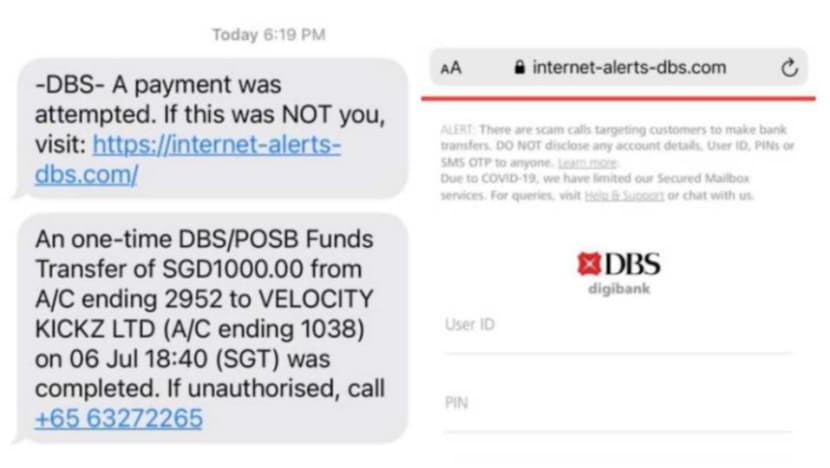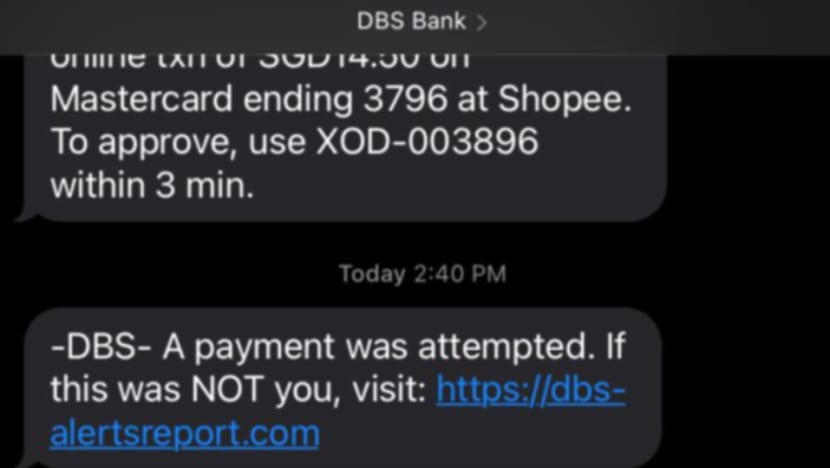New type of phishing scam targets bank customers with spoof SMSes: Police

Screenshots of a spoof SMS (left) with a link directing victims to a phishing website (right). (Screenshots: SPF)
SINGAPORE: Banking-related phishing scams have re-emerged in the form of spoof SMSes that trick victims into thinking they were sent by their bank.
A total of S$1.07 million was lost in 374 cases of such scams between January and May this year, said the Singapore Police Force (SPF) in a news release on Saturday (Jul 10).
Victims of the scam received an SMS allegedly sent by their bank to inform them of payment attempts detected from their bank account.
"As the scammers had spoofed the bank's SMS accounts, the scammers' message might appear in the same SMS conversation thread as a bona fide SMS message from the bank," said the police.
The message prompted the victims to click on the link provided if they had not made the transactions.

When victims clicked on the link, they were led to a phishing website resembling the bank's official website. They were then asked for their personal particulars, Internet banking details and one-time passwords.
After providing the details, the victims realised they had been scammed when they received SMSes about money being transferred from their accounts, said SPF.
READ: More than S$201 million cheated in top 10 scam types last year - Police
The police reminded the public not to click on links or call the numbers provided in unsolicited messages, and to verify the authenticity of the information with the official website or sources.
Personal details, Internet banking details and one-time passwords should never be disclosed to anyone, and bank staff and government officials would not request for these over the phone, they added.
If compromised, "report any fraudulent credit or debit card charges to your bank and cancel your card immediately", said SPF.










